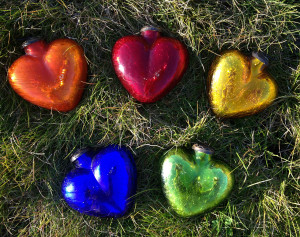Why It’s Hard to Be a Modern Couple (and what you need to learn to be successful)
Out beyond ideas of wrongdoing and right-doing, there is a field. I will meet you there. –Rumi
 You may have heard the expression,“you can be happy or you can be right.” I find that one of the primary blocks to wellbeing in relationship seems to be the longing we have for our partners to acknowledge their wrongdoing and admit to the rightness of our point of view. The unlikelihood of this happening doesn’t seem to deter couples from gamely struggling onward, as if there were actually a chance that their partner could or would surrender their own point of view.
You may have heard the expression,“you can be happy or you can be right.” I find that one of the primary blocks to wellbeing in relationship seems to be the longing we have for our partners to acknowledge their wrongdoing and admit to the rightness of our point of view. The unlikelihood of this happening doesn’t seem to deter couples from gamely struggling onward, as if there were actually a chance that their partner could or would surrender their own point of view.
It turns out that many of the things that we humans think of as right and wrong are matters of opinion. It’s understandable that we think our opinions are true given that for most of human history we’ve tended to marry people from the same culture or tribe. This prevented many conflicts. People from a similar background are more likely to agree on how to be a man or a woman, how to raise children, how to prepare food, and who is in charge of which life arena.
Modern relationships bring together people who have different backgrounds and conditioning. Without the tools to work through differences, relationships often sour and resentments build up. So how do we work through differences? How do we let go of being “right”?
There seem to be two important first steps. One is learning how to talk about differences without blaming or criticizing your partner. The second is being willing to address and work on the concerns of both people. These steps teach us to understand different perspectives and allow us to engage in authentic communication that gets to the heart of our needs.
Marshall Rosenberg’s Compassionate Communication is one great tool for learning how to communicate authentically and without blame. One simple way of evaluating if you know how to do this is to see if what you are saying is inarguable. For instance, “I felt sad when you said that” can’t be denied while “you are always saying sad things” is arguable. “My chest feels tight and I’m afraid” is inarguable. “You treated me badly” is likely to be denied by your partner.
A lot of couples try to solve the problem of differences by withholding their complaints from each other. This doesn’t work any better than blame or criticism. The good news is when we communicate authentically and listen without becoming defensive, it opens us up to real understanding of ourselves and our partner. This leads to more love—and more love equals a lot more fun.



 Over 25 years ago, my father showed me a laminated card in his wallet. On it he’d written a number of things that meant love to my mother. He confessed that if he didn’t write it down and refer to it, he would forget so different was her list from his own. They’d come to their lists by having a talk about what meant love to each of them.
Over 25 years ago, my father showed me a laminated card in his wallet. On it he’d written a number of things that meant love to my mother. He confessed that if he didn’t write it down and refer to it, he would forget so different was her list from his own. They’d come to their lists by having a talk about what meant love to each of them.

